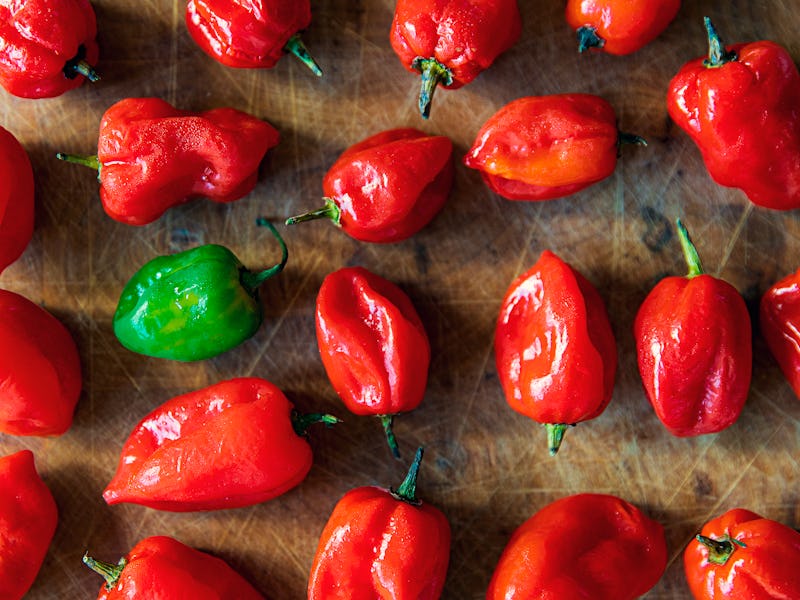Evolutionary scientists debunk a Darwinian theory of spicy food
Think about it.

When we eat spicy food — a pork enchilada, say, or perhaps a Thai papaya salad — we typically experience one of two reactions (beyond thinking it’s delicious): The first is to drink a lot of water; the second is to add more spice. The tendency to go big or go home with the spices isn’t just a hallmark of Asian and Latin American cuisine, however — it is also held up as evidence for a theory called Darwinian gastronomy. Thing is, this entire belief might actually be evidence of something else: The eurocentric, western bias that limits good science.
INVERSE is counting down the 20 science discoveries that made us say “WTF” in 2021. This is #1. See the full list here.
The discovery — In a study published earlier this year in the journal Nature Human Behavior, a team of researchers set out to challenge an idea at the center of Darwinian gastronomy: By eating spicy food in environments where foodborne diseases are common (i.e. Latin America and Asia), humans are benefiting themselves on the biological level.
The spicy cuisines of Central and South America and Asia had fed this concept — a long-held hypothesis among scientists is that diets rich in certain spices have antimicrobial benefits and protect the eaters from disease.
So, the researchers analyzed 33,750 recipes from 70 cuisines, featuring 93 different spices. Hotter countries with higher rates of foodborne illnesses did tend to have spicier cuisines, but ultimately the researchers found absolutely no credible evidence to suggest spicy food offered any antimicrobial benefit whatsoever.
Lindell Bromham, the study’s first author and professor of ecology and evolution at the Australian National University, put it bluntly in a statement at the time: “Spicier food is found in hotter countries, but our analysis provides no clear reason to believe that this is primarily a cultural adaptation to reducing infection risk from food.”
Why it matters — Critically, this study is a demonstration of how biases can affect scientific theory: At first glance the antimicrobial theory has legs: Of course, people in places with a higher risk of infection from food would do everything possible to prevent disease. Darwinian gastronomy suggests what we like to eat stems in part from how our bodies have adapted to their environment — but this study suggests otherwise when it comes to the theory of spice.
Ultimately, the study offers a different insight: Scientists may reverse-engineer theories based on correlations rather than any underlying cause as a result of their own biases and beliefs.
Western biases about spice-laden foods — like the nutmeg seen here that goes in your chai — may have clouded our investigation into their true benefits.
How they did it — Broham and his team examined the ingredients in tens of thousands of recipes. They calculated the mean and median spice use per recipe and paired these data with information on myriad socioeconomic and environmental factors gleaned from different regions around the world.
Curiously, the researchers found many correlations in the data that they could use to explain why spicy food is seemingly preferable in warmer countries and regions — but when they looked closer and tried to validate a link, it crumbled.
In one telling analysis, the team point out that the number of road accidents more accurately predicted the spiciness of the local cuisine than did the prevalence of foodborne illnesses.
What’s next — This study debunks a popular myth about spicy food. But it can help to inform the way in which we interpret theories, information, and scientific findings. Science as a whole suffers from a historical western bias that can lead to narrow datasets, limited analyses, and cultural narratives eclipsing good science. In other words, even if something seems right, check yourself before you get invested.
That might take a moment to wrap your head around, but you can always contemplate it over a bowl of goat vindaloo or dan-dan noodles.
INVERSE is counting down the 20 science discoveries that made us say “WTF” in 2021. This is #1. Read the original story here.
This article was originally published on